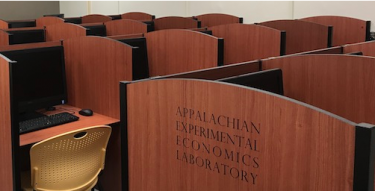 Experimental Economics applies the laboratory method of inquiry to better understand how society operates. Experiments, in the lab and in the field, allow for a more precise investigation of how individual, social and institutional characteristics influence individual behavior and aggregate outcomes. Consequently, the lab can serve as a wind tunnel for policy analysis to better predict the responses and outcomes of competing policies. Such policy simulation increases the power of the economic inquiry and policy analysis. Researchers apply the experimental method in the laboratory and the field, including survey experiments and randomized control trials.
Experimental Economics applies the laboratory method of inquiry to better understand how society operates. Experiments, in the lab and in the field, allow for a more precise investigation of how individual, social and institutional characteristics influence individual behavior and aggregate outcomes. Consequently, the lab can serve as a wind tunnel for policy analysis to better predict the responses and outcomes of competing policies. Such policy simulation increases the power of the economic inquiry and policy analysis. Researchers apply the experimental method in the laboratory and the field, including survey experiments and randomized control trials.
Recently Funded Projects
- Commonly Experienced Sleep Restriction and Behavior in Strategic Social Interactions. National Science Foundation, $409,534, 2017-20.
- A University-Utility Field Experiment to Study Electricity Demand Responses to Electronic Notifications. Sloan Foundation (E2e), $213,253, 2017-20.
- Sleep Restriction and Circadian Misalignment Impacts on Decision Making. Office of Naval Research Global, $450,000, 2017-20.
- Willing to Pay? Testing Institutionalist Theory with Experiments. European University Institute, 18,000 Euros, 2016.
- Sleep Restriction and Circadian Timing and decision processes. National Science Foundation, $405,628, 2012-16.